7 Incredible Nurses Who Made a Difference in the Nursing World - National Nurses Week
Today marks the end of National Nurses Week! The American Nurses Association announced that the theme for this year’s Nurses Week was ‘Nurses Make a Difference.’ To stay on theme, each day this week on our social media platforms, we highlighted a nurse in history whose dedication and perseverance helped shape and expand the field of nursing. Here are the 7 nurses we chose to shine a light on:
Dorothea Dix (1802)
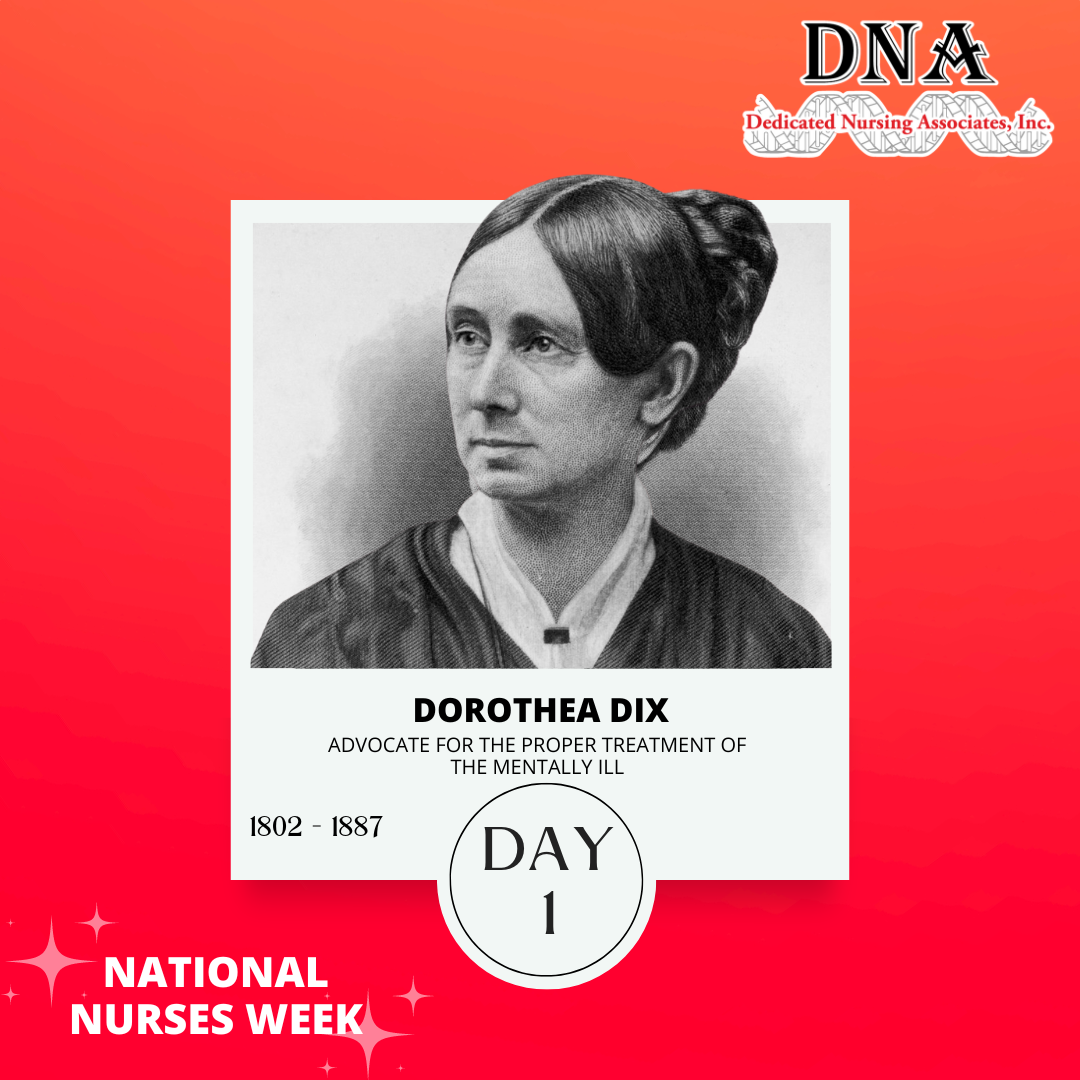
Although Dorothea Dix was not formally trained as a nurse, she had a huge impact on the care of poor and mentally ill individuals in the United States. Dorothea traveled the U.S. and exposed the improper and inhumane conditions that mentally ill prisoners were living in. She reported her findings to several politicians, demanding that officials take action toward reform.
As a result of her perseverance, the state mental hospital in Worcester, Massachusetts was expanded to better house and care for mentally ill patients. Dorothea went on to do the same in Rhode Island, New York, and eventually across the pond in Europe! Old hospitals were redesigned to fit her ideas, and new hospitals were built based on the principles she supported. In all, she was responsible for founding 32 mental hospitals across 15 states and had a hand in establishing two more in Japan.
Clara Barton (1821)
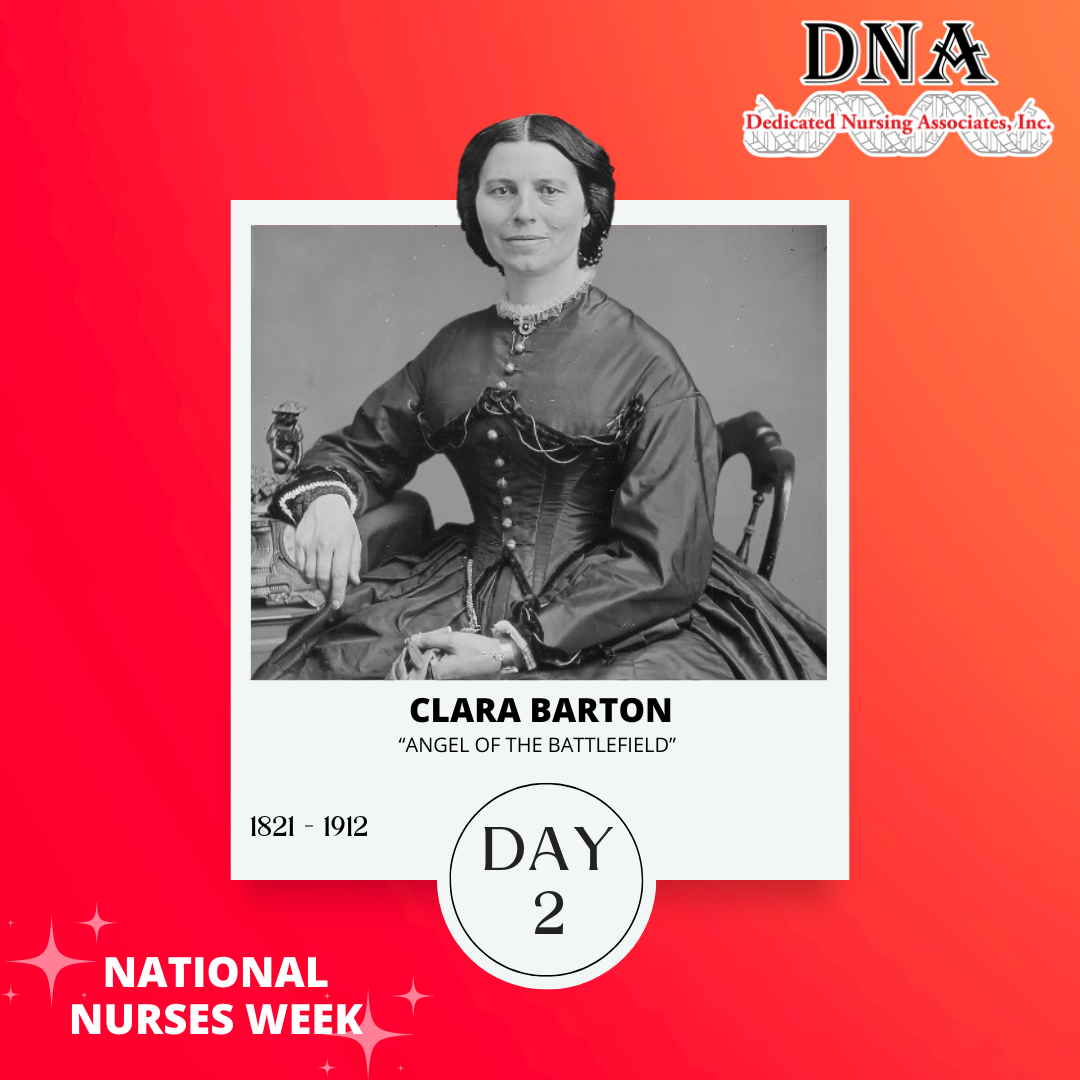
Clara Barton was a battlefield nurse during the Civil War, providing care and supplies to soldiers which earned her the nickname ‘Angel of the Battlefields.’ During a trip to Switzerland, she learned about the Red Cross, a humanitarian organization providing neutral aid to those injured in combat. In 1881, Clara founded an American branch of the Red Cross and ensured that the organization would respond not only to battlefield crises, but also to natural disasters like floods and earthquakes.
Today, the Red Cross still upholds those promises by providing comfort to people affected by disasters; supplying about 40% of the nation’s blood; teaching lifesaving skills; distributing international humanitarian aid; and supporting veterans, military members and their families.

Mary Eliza Mahoney (1845)
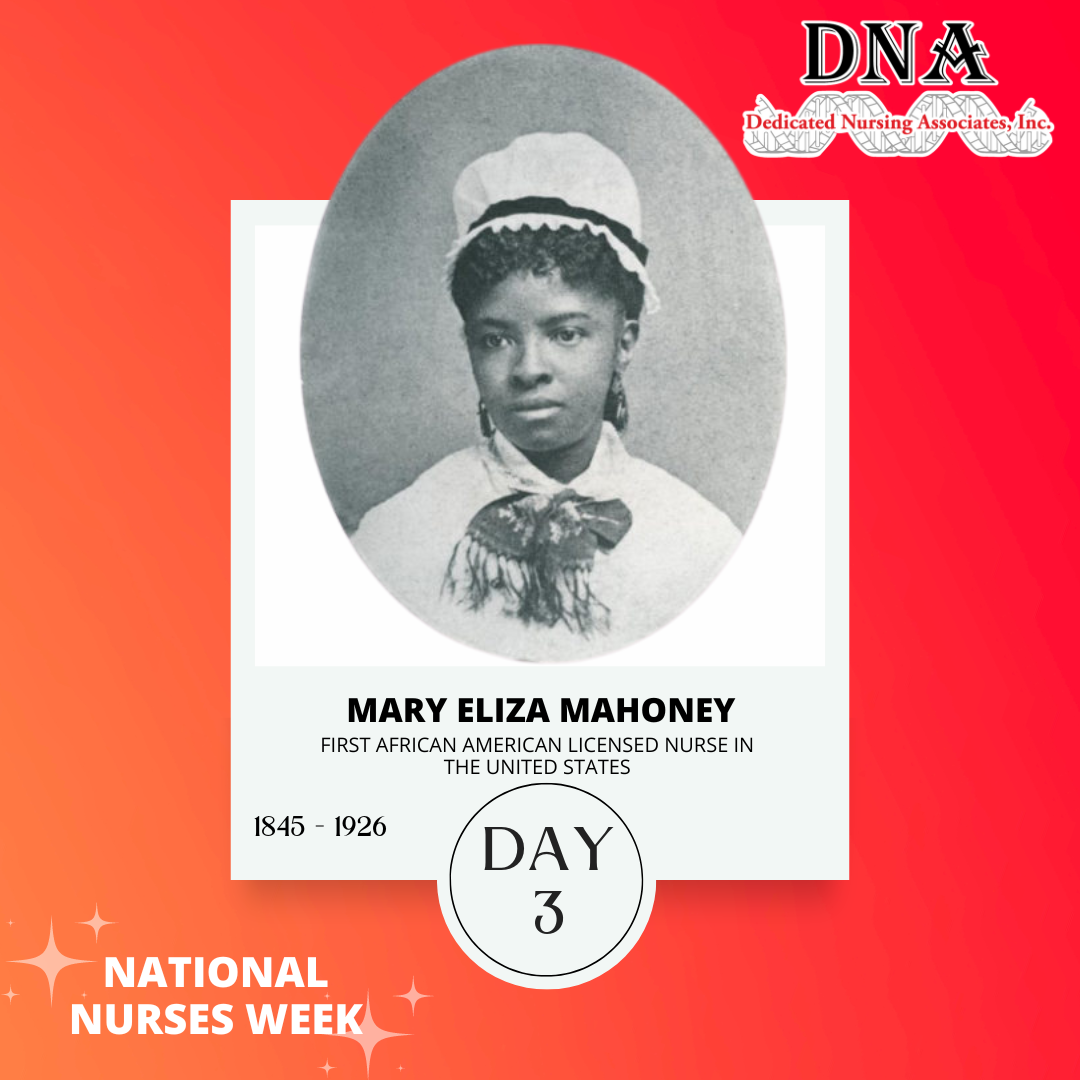
Mary Eliza Mahoney was the first African American licensed nurse in the United States. As a teenager, Mahoney knew she wanted to be a nurse, so she worked at the New England Hospital for Women and Children in Boston. She worked there for 15 years as a janitor, cook, washwoman, and nurse's aide.
In 1878, Mary was admitted to the hospital's intensive professional graduate school for nursing. Of the 42 students that entered the program, only 4 completed it, Mary being one of them, making her the first African American in the United States to earn a professional nursing license. Due to the overwhelming amount of racial discrimination she faced, she chose to become a private nurse where she provided care for 40 years before retiring. In 1908, she co-founded the National Association of Colored Graduate Nurses (NACGN), a group that advocated for the equality of African American nurses. Her legacy lives on through the Mary Mahoney Award, presented by the American Nurses Association, which is given to nurses and nursing groups that promote integration in their field.
Lillian D. Wald (1867)
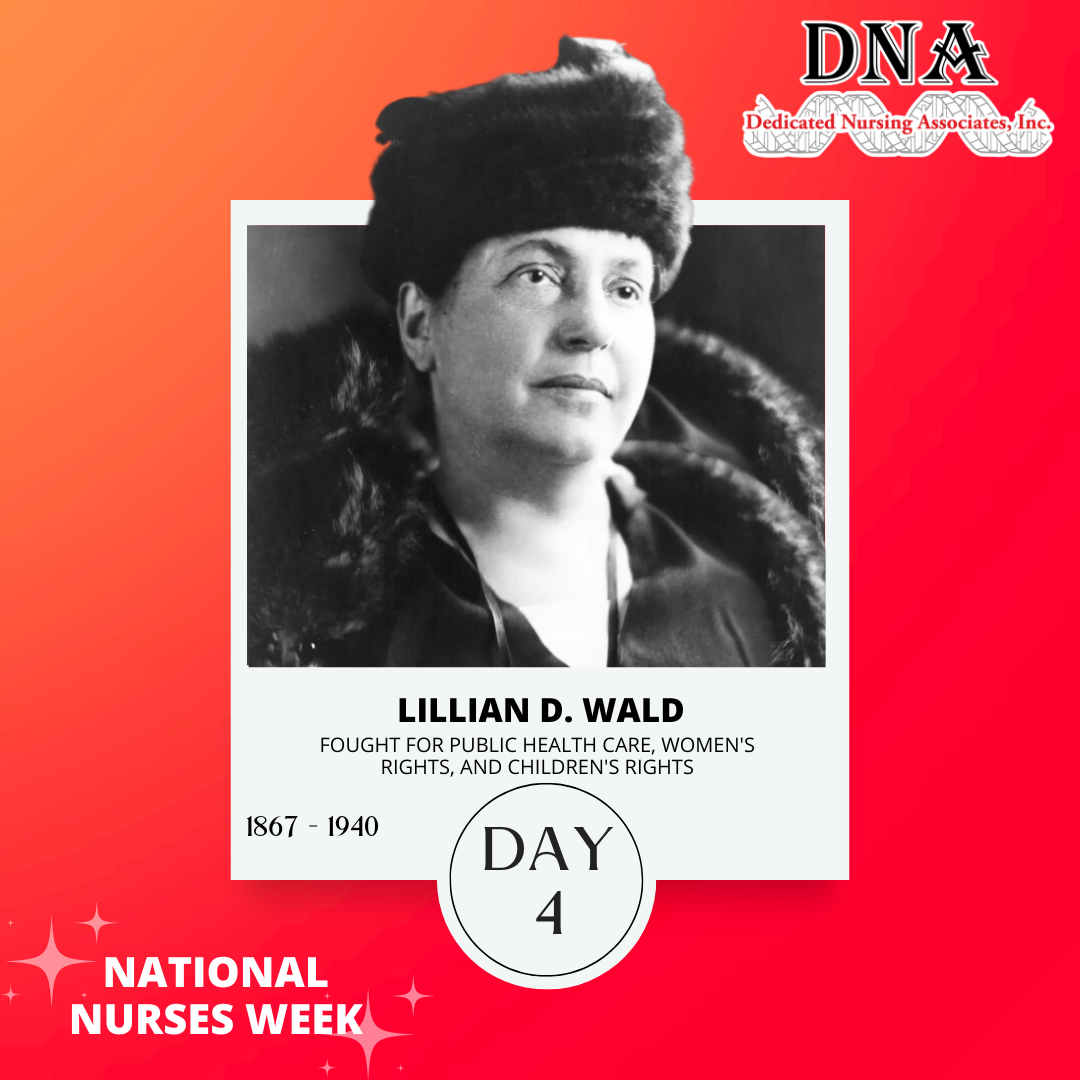
Lillian D. Wald graduated from the New York Hospital Training School in 1891 and began working as a nurse at an orphanage and teaching immigrant families on the Lower East Side of New York. During this time, she witnessed the hardships that poor immigrant families were facing and decided to dedicate her work to helping these communities.
Lillian coined the term “public health nurse” and worked outside of hospitals in mostly poor and middle-class communities. She co-founded the Henry Street Settlement House, an organization dedicated to providing social services and instruction in various subjects for the Lower East Side community. Eventually, the Henry Street Settlement expanded to seven buildings, had 3,000 members in its classes and clubs, and 92 nurses tending to home health calls. She also established one of the earliest playgrounds and helped pay the salary for the first public school nurses in NYC. Beyond her work with the Henry Street Settlement, Lillian was a tireless advocate for the rights of women, children, immigrants, and laborers.

Margaret Sanger (1879)
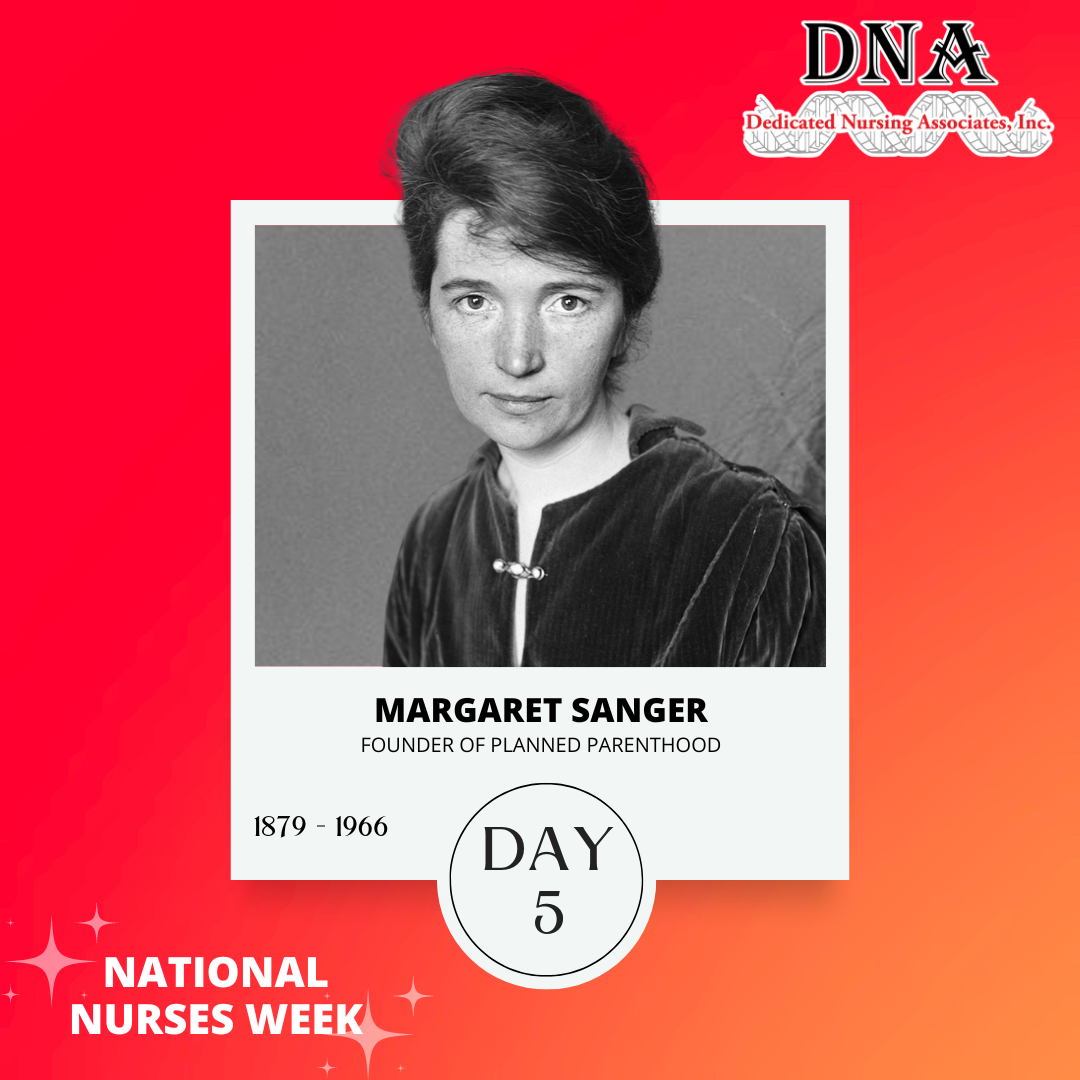
Margaret Sanger was instrumental in the legalization of birth control. Her commitment to this feat began at a young age after watching her mother struggle to heal after eleven childbirths and seven miscarriages. Margaret attended nursing school and began working in New York City where she witnessed many deaths resulting from too many pregnancies, miscarriages, or in desperate cases, botched abortions. She then decided to switch her focus from nursing to finding better contraceptives for women.
In 1921, she founded the American Birth Control League, what we now know as the Planned Parenthood Foundation, and spent her time advocating for safe and effective birth control methods. In 1951, Margaret met a medical expert named Gregory Pincus who helped her develop the first birth control pill, fulfilling her life-long goal of bringing safe and effective contraception to the masses.
Luther Christman (1915)
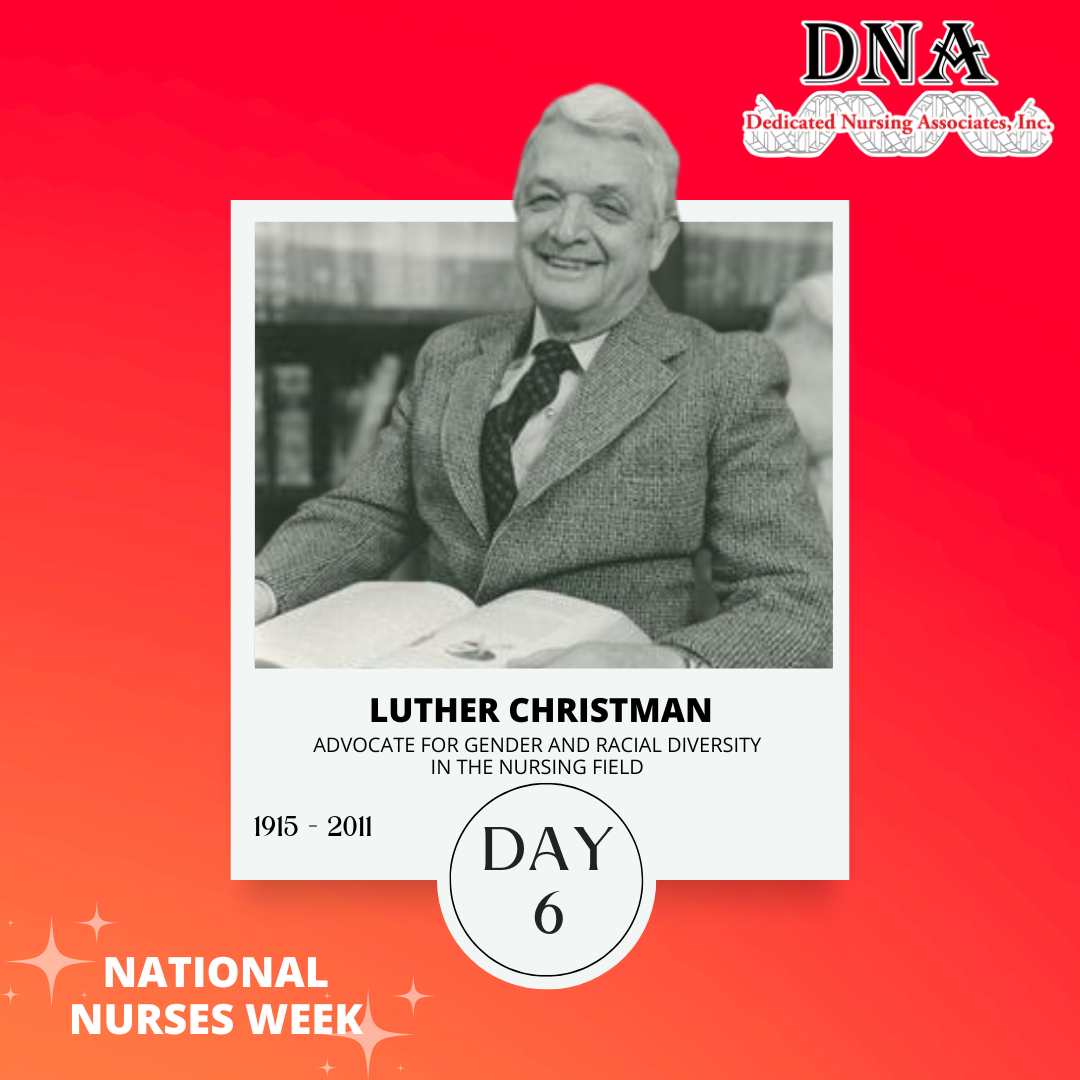
Luther Christman graduated from the Pennsylvania Hospital School of Nursing for Men in 1939 and faced a lot of discrimination as a man in a profession dominated by women. He was denied entry to many university programs and the Army Nurse Corps because of his gender.
Despite his struggles, over his 65 years as a nurse, he advocated for racial and gender diversity in the nursing field. He founded the Rush University College of Nursing, and his name is often associated with the “Rush Model,” an approach that emphasizes the blend of education and practice for nursing schools. As dean of Vanderbilt University’s School of Nursing, Luther was the first to employ African American women as faculty and he strongly supported the recruitment of more men into the nursing profession. In 1974 he founded the American Association for Men in Nursing, a program that served as a resource for men hoping to break into the nursing field.

Loretta C. Ford (1920)
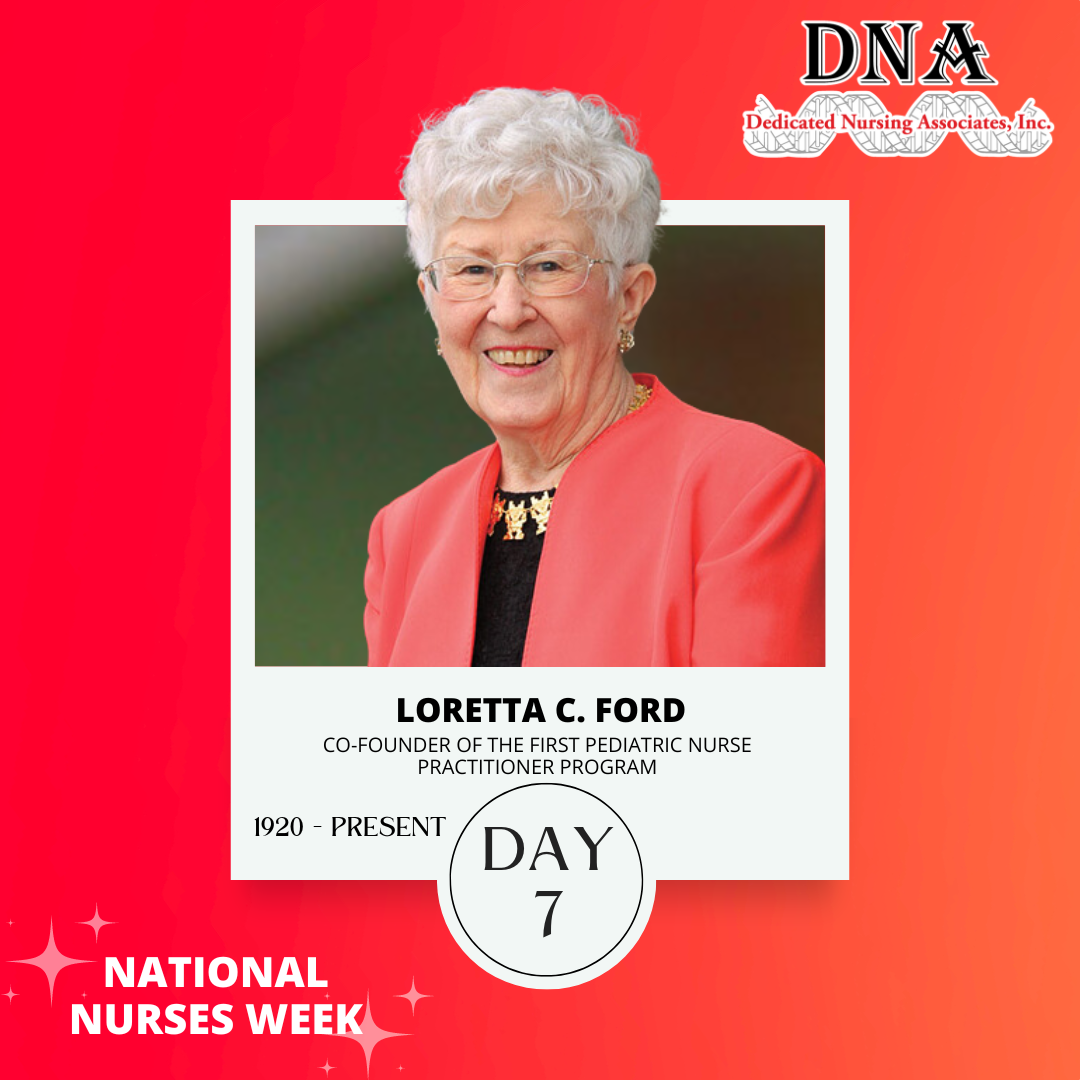
Loretta C. Ford is recognized as an influential part of nursing because she co-founded the first pediatric Nurse Practitioner program! After noticing that a lack of primary care physicians in the community was causing a lack of health care for families and children, Loretta partnered with Henry K. Silver, a pediatrician at the University of Colorado Medical Center. Together, they created and implemented the first pediatric nurse practitioner model and training program. The program was launched in 1965 at the University of Colorado.
After the success of the program, Dr. Ford served as the Founding Dean of the University of Rochester School of Nursing and received numerous awards including the Living Legend Award from the American Academy of Nursing.
We appreciate the nurses throughout the history of the profession who were willing to challenge what was expected in order to create a safer, more accommodating, and more accepting healthcare industry. We also want to acknowledge and thank the nurses of today who continuously choose to dedicate their lives to caring for others, advocating for patients, and working to improve the nursing field. Know that you 'Make a Difference' in each of the many lives that you cross paths with every day!
“To know even one life has breathed easier because you have lived. This is to have succeeded.”
- Ralph Waldo Emerson

